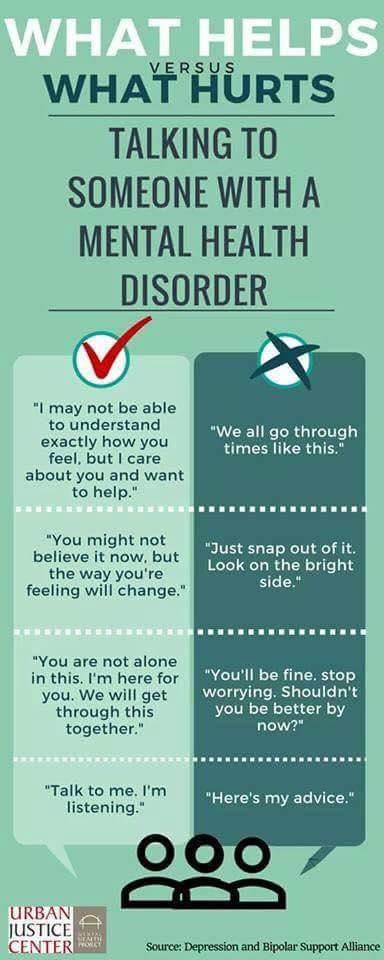Many people with serious mental illness are challenged doubly. On one hand, they grappled with the symptoms and disabilities that result from the disease. On the other hand, they are challenged by the stereotypes and prejudice from the misconceptions about mental illness. As a result of both, people with mental illness are robbed of the opportunities that define a quality of life; good jobs, safe housing, satisfactory health care, and affiliation with a diverse group of people.
So how do we as part of the community, to understand them by not stigmatise and judging them. It can be very difficult to see someone who you care about becoming distressed and unwell, but you don’t need to be an expert on mental health to offer support.
Show your support
If you know someone has been unwell, don’t be afraid to ask how they are. They might want to talk about it, or they might not. But just letting them know they don’t have to avoid the issue with you is important. Just spending time with the person lets them know you care and can help you understand what they’re going through.
Ask how you can help
People will want support at different times in different ways, so ask how you can help. It might be useful to help keep track of medication, or give support at a doctor’s appointment. If your friend wants to get more exercise, you could do this together, or if your partner is affected by lack of sleep, you could help them get into a regular sleeping pattern.
Be open-minded
Phrases like ‘Cheer up’, ‘I’m sure it’ll pass’ and ‘Pull yourself together ’definitely won’t help. Be non-judgemental and listen. The person experiencing a mental health problem often knows best what is helpful for them.
Don’t just talk about mental health
Keep in mind that having a mental health problem is just one part of the person. People don’t want to be defined by their mental health problem, so keep talking about the things you always talked about.
Show trust and respect
Trust and respect between you and the person experiencing a mental health problem are very important – they help to rebuild and maintain a sense of self-esteem, which mental health problems can seriously damage. This will also help you to cope, as you will hopefully see your support having a positive impact on the person you care about.
Look after yourself
It is often easier to support someone well if the caring role is shared with others. Finding someone to talk to about the situation is also very helpful. It is important to set boundaries and maintain your own mental well being
If you become unwell you will be less able to offer support. If your friend or relative has been given an assessment, you may be entitled to have your needs as a carer assessed and taken into account.

| Semakan Akhir | : | 1 Mac 2017 |
| Penulis | : | Suraya binti Muhamad |
| Akreditor | : | Ruhana binti Mahmod |







